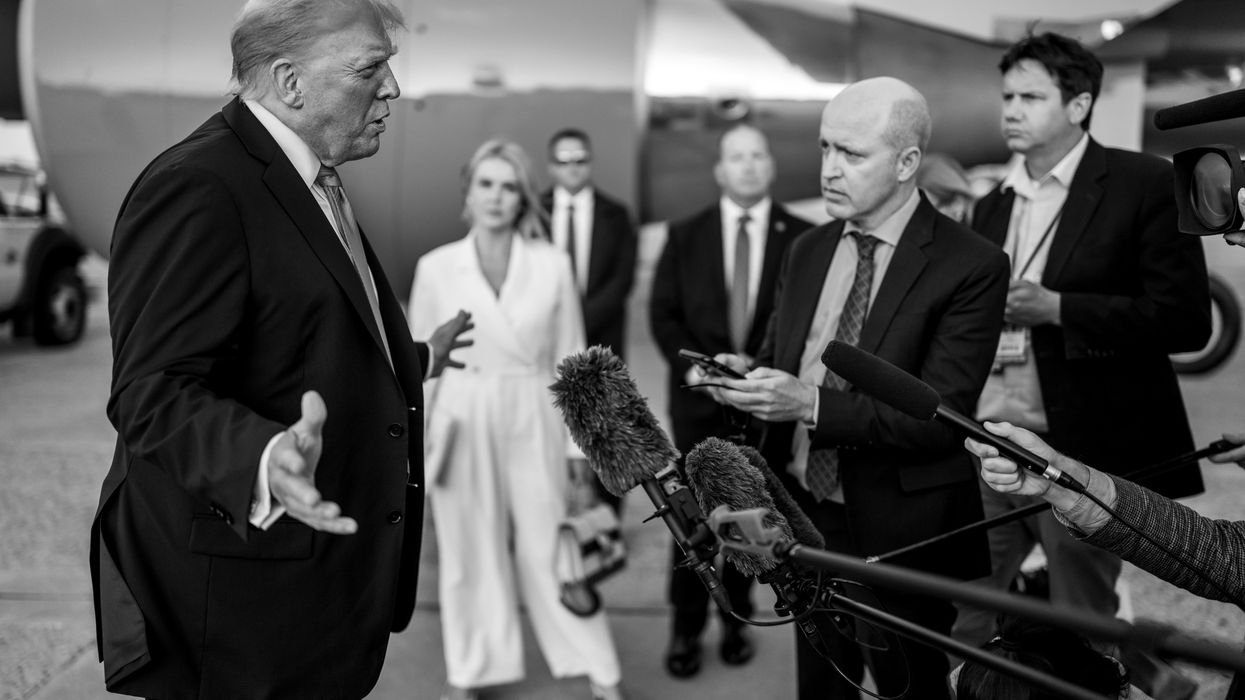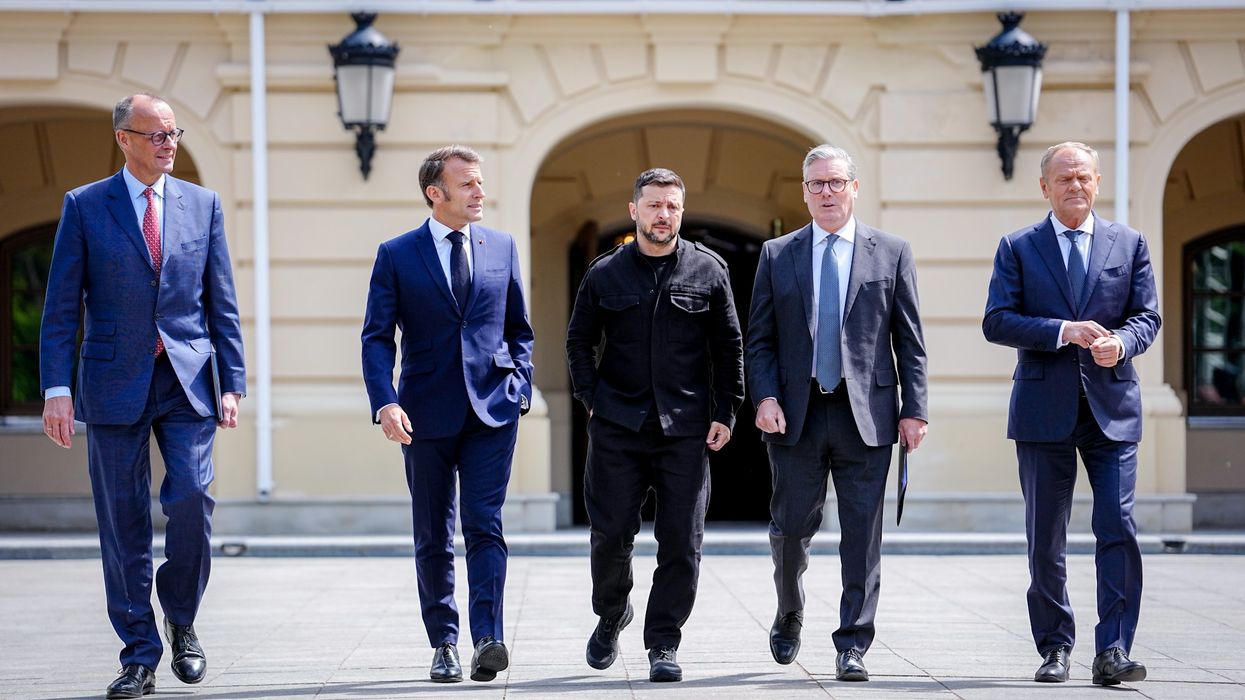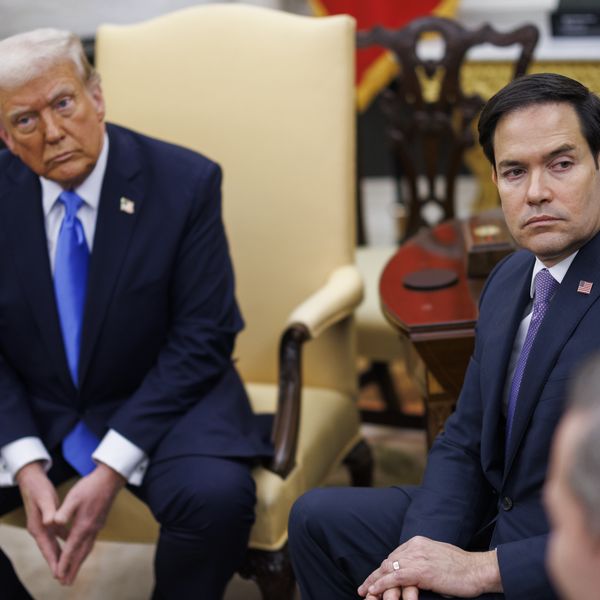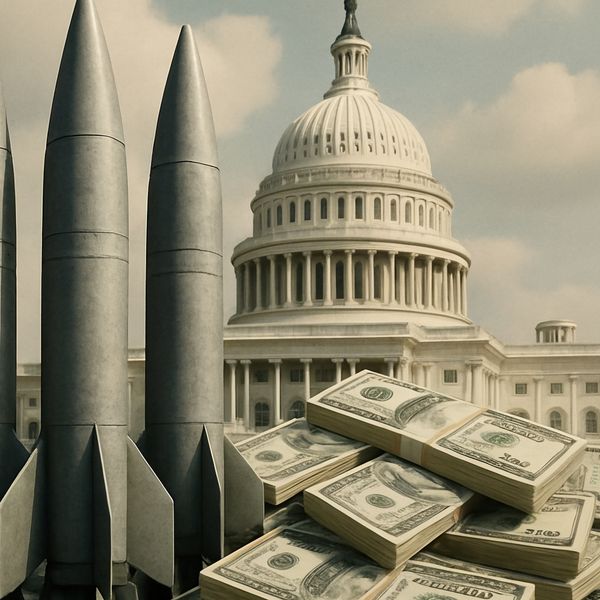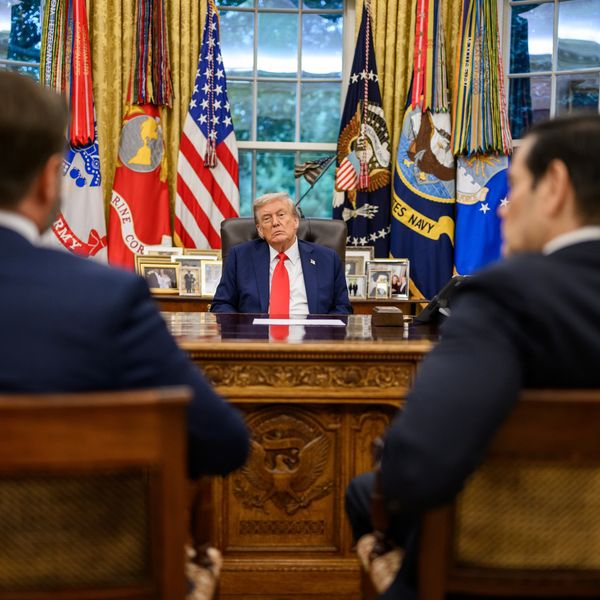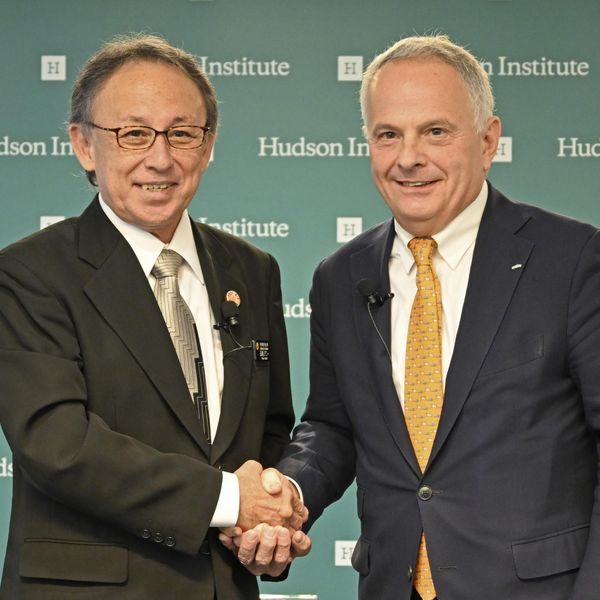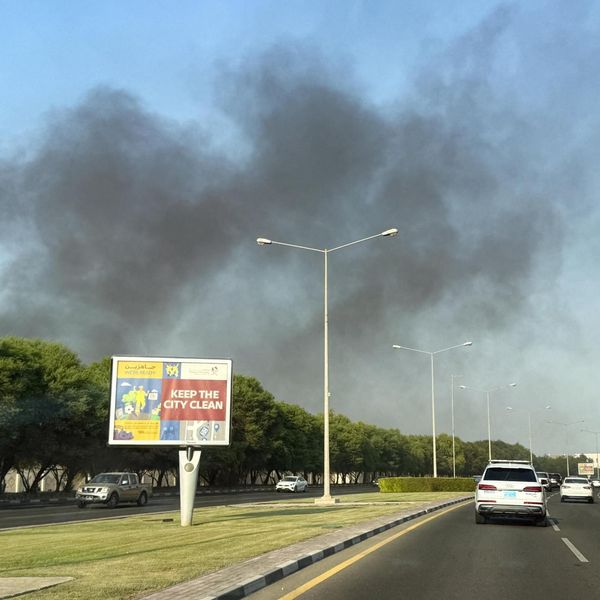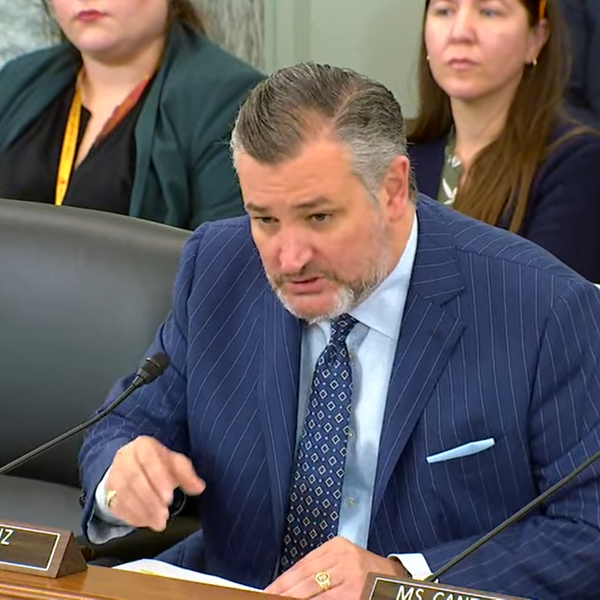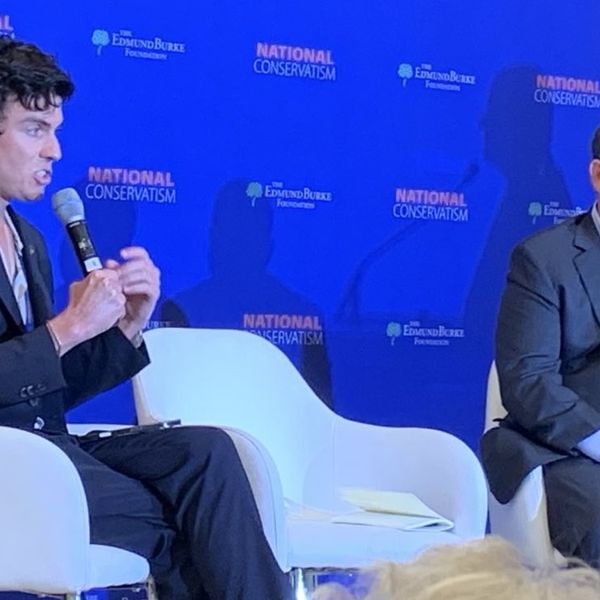The negotiations to restore the Joint Comprehensive Plan of Action (JCPOA) remain stalled, and there is now little chance that the U.S., Iran, and the P4+1 will reach a mutually satisfactory agreement before the U.S. midterm elections in November.
According to Laura Rozen’s reporting, the latest response from the Iranian government has set back the negotiations even further, and the Israeli government believes that there will be no agreement in the near term. Israeli prime minister Yair Lapid said last week that his government was engaged in an “intensive campaign” to kill the deal, and he seems closer than ever before to reaching that goal.
According to Israeli press, President Biden and U.S. officials reportedly conveyed to Lapid in recent conversations that the nuclear deal would not be restored in the foreseeable future.
This week, Lapid posed in front of one of the advanced F-35 fighters Israel purchased from major U.S. contractor Lockheed Martin to send a message to Iran. “It is still too early to know if we have indeed succeeded in stopping the nuclear agreement, but Israel is prepared for every threat and every scenario.”
The failure to revive the nuclear deal has been a joint U.S.-Iranian failure, as both governments have hardened their positions as the talks have dragged on, but the Israeli government also bears significant responsibility for throwing wrenches into the works in its attempt to sabotage U.S. reentry. The Israeli government has not only used political pressure in Washington to keep the Biden administration from rejoining the agreement, but it has also used it covert assassination and sabotage operations to make it more difficult for Iran to return to compliance.
Israel’s efforts at sabotaging the negotiations have been more successful than their efforts at sabotaging the nuclear program. Israel’s attacks have had a major effect in provoking Iran to expand its nuclear program far beyond anything it had done in the past. As a result of Israeli attacks ostensibly aimed at delaying Iran’s progress with its nuclear facilities, the Iranian program has accelerated and reached new heights with 60 percent enrichment and reduced cooperation with the International Atomic Energy Agency (IAEA).
That expansion has put additional pressure on the Biden administration to offer no meaningful concessions that might expedite the conclusion of the talks. At the same time, the administration has gone out of its way for the last year and a half to “reassure” the Israeli government with frequent consultations and even the recent sale of refueling tankers that Israel would need to carry out its own attack on Iran. In return for its indulgence, the Biden administration has been repaid with ingratitude.
There was renewed optimism among European governments in recent weeks that the revival of the nuclear deal might be in the offing. A week ago, French President Emmanuel Macron expressed hope that the talks would conclude successfully within a matter of days, but once again that hope proved to be misplaced. European officials seem to be the only ones deeply concerned about the possible failure of the negotiations, and if it were not for the ongoing efforts of European intermediaries, the process would have already fallen apart months ago.
Unfortunately, the entreaties from European officials seem to have fallen on deaf ears in Washington and Tehran as both governments have dug in and refused to compromise. The Iranian government has also insisted on reviving its objections to an IAEA probe, which has put an additional and possibly insuperable obstacle on the path to restoring the agreement. If the U.S. and Iran finally do manage to put their disagreements aside for now, the sobering reality is that a revived nuclear deal would probably have only two years left before the U.S. reneges on it again.
There has been a remarkable lack of urgency on the Biden administration’s part to restore the deal. This has been evident since the process began in the spring of 2021, and nearly a year and a half later there has still been no resolution. Instead of the relatively quick and straightforward reentry by the U.S. that should have happened soon after Biden entered office, the Biden administration opted for a slow, cumbersome approach that squandered the opportunity to wrap things up before the outgoing President Rouhani government left office.
The U.S. always put the onus for restoring the deal on Iran rather than accepting responsibility for causing the problem when the Trump administration violated U.S. commitments and embarked on a destructive economic war through “maximum pressure” sanctions, and it has kept those sanctions in place throughout the negotiations. At every point, the standard administration line on dealing with Iran has been that the “ball is in their court.”
For their part, the Raisi government has also dithered and tried to drive a harder bargain than the previous government, and that has contributed to the current impasse.
Even though all sides seem to recognize that the collapse of the JCPOA would lead to a worsening of tensions and possibly even a crisis over the nuclear issue, the U.S. has been unwilling to take any risks that might break the deadlock. The president himself has had almost nothing to say about the issue except when he is asked direct questions about it, and then he has usually made ill-advised comments about using force against Iran should diplomacy fail.
The administration does not want to end the negotiations, but it is not prepared to offer Iran any additional incentives that could entice the Raisi government to drop or soften its current demands. Unless there are major changes on both sides, it is increasingly likely that the nuclear deal will collapse, or it may survive only on paper.
There is no advantage in waiting until after the midterms to fix these problems. Restoring the nuclear deal in September or October would not cost Biden’s party any votes, and there is no Senate race that is going to turn on whether Biden fulfills his campaign promise to rejoin the JCPOA. If the deal isn’t restored before the elections, it will probably languish until the new year, and by then it may be too late to save it.
The assumption that the U.S. has the luxury to wait to restore the deal is one of the reasons why the deal’s survival now hangs by a thread. The longer that the deal is allowed to remain in limbo, the less incentive the Iranian government will have to resume compliance with it. Iran received relatively few benefits when the JCPOA was fully in force, and it has received no benefits for the last four and a half years. The prospect of two years of sanctions relief is hardly going to inspire enthusiasm in Tehran.
The last four years have shown how much sanctions and sabotage can backfire when it comes to constraining Iran’s nuclear program. Were it not for “maximum pressure” and Israeli attacks, Iran’s nuclear program would be much smaller and less advanced than it is today, and everyone would be better off than they are. It is only a fair diplomatic agreement that benefits all parties that can deliver lasting nonproliferation success, and there are no other workable alternatives that can achieve the same result.
There is no time like the present to restore one of the strongest nonproliferation agreements ever negotiated. If the U.S. and Iran fail to seize this opportunity, we will all come to regret it.

